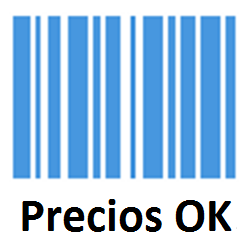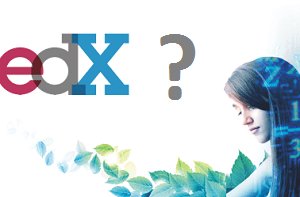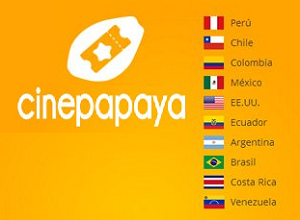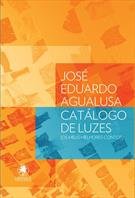
Arquivo para February, 2014
Germany wants to protect data
 In her weekly podcast (posted video), the prime minister of Germany, Angela Merkel, said: “We will talk to France regarding how can we have a good level of data protection” and added: “above all, we´ll talk about suppliers that give security to our citizens, so we will not have to send emails and other information to the other side of the Atlantic”, she said about data surveillance.
In her weekly podcast (posted video), the prime minister of Germany, Angela Merkel, said: “We will talk to France regarding how can we have a good level of data protection” and added: “above all, we´ll talk about suppliers that give security to our citizens, so we will not have to send emails and other information to the other side of the Atlantic”, she said about data surveillance.
Merkel noted that companies like Google and Facebook have their operations not only in countries with little data protection, but are still active in others, such as Germany, which has a high degree/grade of data protection.
In Germany, where there have already been periods of extreme vigilance, as in the time of the Nazism and also in the former GDR, the communist part of Germany, there is a great suspicion about data control and lots of worries concerning privacy, and may impose a privacy policy, making Google and Facebook respect the German law.
In France, Hollande‘s office confirmed that the idea has already been presented and France agrees with it. “It is important that we take the initiative together”, said a French responsible quoted by Deutsche Welle.
The initiative will tend to expand to Europe, it is better than spreading a neurosis about data privacy, the governments are the ones who should take concrete action to protect its citizens and not to forbid or create disincentives to the use of these democratic means.
Virtual concept
 Other definitions were listed in scientific studies and researches of etymological origin, and find for virtual: it´s what exists as faculty but without exercise or effect/result, which does not exist as a reality, but as power or faculty, and still an important definition: what is likely to happen, potential and possible.
Other definitions were listed in scientific studies and researches of etymological origin, and find for virtual: it´s what exists as faculty but without exercise or effect/result, which does not exist as a reality, but as power or faculty, and still an important definition: what is likely to happen, potential and possible.
In the settings of Anglo-Saxon origin languages, an overview of definitions are possible similar to the previous settings: is what exists as faculty but without assignment or current effect/result, which does not exist as a reality but as power/potency, it is possible to perform as potential and possible.
You can even incorporate to virtual, present/current ontological concepts as: the one that is equivalent to the other, being able to play the role of these ones, in virtue or activity, in the meaning used in Portuguese and in the Anglo-Saxon root such as : something that exists in essence or effect/result, although not formally recognized and accepted as such, and although there are new ideas built up, with new meanings, it cannot escape its etymological origin, virtus and virtual, because it would be a confusion.
There were already some studies of these categories. We will get to know some significant contributions of contemporary scholars.
Among these authors I highlight three main references in my view: Gilles Deleuze (Difference and Repetition), Anthony Giddens (The consequences of modernity) and Pierre Levy (What is virtual).
Thus virtual is not equivalent to unreal, because it is possible in the sense of “being” in potency.
Latin American: new empreneteurs?
It´s what the BBC Online says, stating that besides natural resources that can boost/push these countries, citing/quoting: the oil from Venezuela, the copper of Chile, Argentinean soybeans, Ecuador´s bananas, Mexican silver, and the Brazilian timber, “the vast region is blessed with a fabulous variety of raw materials that the world wants and needs”.
.(não encontrei no original em portugues)
While the countries of the Organization for Economic Co-operation and Development (OECD) spend an average of 2.4% of their gross domestic product (GDP) on research and development, in Chile and Mexico – the only two Latin American members of the club – the rate is 0.4%, but in other countries of the region (including Brazil) it’s even less.
But thankfully, the magazine says that this is changing.
Until recently, entrepreneurship in Peru was a question of survival,” says Gary Urteaga, a Peruvian entrepreneur of Cine-Papaya: “People started their own businesses because they couldn’t get a job. They’d sell sandwiches in the streets and wash cars”, and he said: “But now, for the first time, people are choosing to be entrepreneurs.”
In Colombia, a medical start-up called Keraderm has won state funding to develop a new technology for skin grafts.
Vivek Wadhwa, a US-based technology entrepreneur who advised the Chilean government on Start-ups in Chile, says: “the culture is changing”.
Among dreams, imagination and technology
Everything we want to dream, imagine and travel, even if at the cheap cost of the Web, seems to find skeptics, critics and fundamentalists warning us of the dangers.
But thankfully the planet continues to have utopian, dreamers and poets. I came across, these days, with one of these, simply a wonderful and unusual book of an Angolan writer, white and who as travelled a lot: José Eduardo Agualusa, I started flipping through the book and already ordered it online, but anxious and excited I asked a friend to get it in a library, for me.
It seems incredible, but like if it would be a divine light, I opened just in one page about his anthology “Catalogue of lights” that explained “Why is it so important to see stars”, I like to know about the stars, quantum physics and look to the sky, at night, from my house which is located on a dark street.
And Agualusa continues: “Having stopped to confront, every night, with the unlimited, the infinite, the awesome immensity of the universe – the men lost their humbleness, and with the humbleness they lost their reason, the madness of the world is, in her opinion, directly linked to the rural depopulation and the vertiginous multiplication of the big cities”.
Thanks! Dreamer, utopian and realistic José Eduardo Agualusa, dreamers give me courage, life and hope, excuse me the non- utopian, they are too bitter, the reality is hard enough.
Here comes a movie about Disney
Already with the controversial view, the movie Saving Mr. Banks (in Portuguese, Walt in the backstage of Mary Poppins), which has as actor Tom Hanks in the skin of Walt Disney will soon start showing on the screens of Brazil’s movie theaters.
The first controversy is due to a grandniece of Walt Disney , Abigail Disney , who said he did not regret saving the critical Meryl Streep against his uncle, about the movie Mary Poppins , which he decided to call it ” racist” and ” misogynist ” during an award ceremony in New York on your facebook , that the character portrayed by Tom Hanks , is quite different from the creator of Disney , and tried to “make him a saint”, he wrote .
The story of the movie Mary Poppins , which was released by Walt Disney Studios in 1964 and has had starring Julie Andrews , is now told by a script that shows how the rights of the works were acquired by Disney .
The movie Saving Mr. Banks has the plot, as a cartoonist who spent 14 years trying to convince the Australian author Pamela Lyndon Travers ( Emma Thompson ) to sell the rights to the work of Mary Poppins to turn them in feature film.
In the movie , Disney has just knowing the background history of the writer and the relationship with his father , Mr. Banks , a serious and cold banker who sees his family being caught up in the joy of the magical nanny .
Pope says “Internet is the gift of God”
The Pope says “The internet is a gift from God”
Pope Francis has given signs of openness and update. On the day of the journalist (23/01/2014), he said that the “internet is a gift from God”, although some Christian conservatives remain in a negative criticism of the internet.
As tradition of the Catholic church, the day of St. Francis of Sales, patron of the journalists, with the title: “Communication as a service for a real culture of meeting/reunion”, the pope made his first speech about social communication, on the date of the saint which is the patron of the journalists, with the title: “Communication as a service for a real culture of meeting/reunion”.
In the speech, he speaks of the social networks in a clear tone of trust and support, without forgetting the dangers that all media offer, he stated that “the Internet can provide more ways for reunion and solidarity among all, which is a good thing, a gift from God”.
Using a language inspired in the bible, he says we should “take to the wounded man”, by digital means, “oil and wine” and “May our communication be a scented oil for pain and a good wine for joy,” said Pope Francis.
Showing a clear conscience, without the fundamentalist nonsense about the internet, he recalled that “the exclusion, disorientation, fitness, disease, ignorance of the other” can also exist on the Internet.
Pope Francis is followed by more than ten million internet users in Twitter.
Argentinean app controls prices
An Argentinean app controls the prices in this country, the app is called “Precios OK” and it was developed by two  university students Yamila Fraiman and Alejandro Torrado and it works by reading the bar code of the product, then the system analyzes based on other prices and indicates whether there is an excessive increase.
university students Yamila Fraiman and Alejandro Torrado and it works by reading the bar code of the product, then the system analyzes based on other prices and indicates whether there is an excessive increase.
The tool is already in the list of the most downloaded in Argentina, being, for example, among Candy Crush and Instagram, and has already received complements of the President Cristina Kirchner.
The government from there alerts the people that abusive prices and rising inflation would be linked only to greedy businessmen and is “under control”, seems like a speech already known.
Prices for meat, medicine and many other foods, in Brazil, seem not to be compatible with what inflation says, not to mention the abuse of banks and providers of telephone services.
We are at the time of the beginning of school classes and it would be good to keep an eye in the value of the tuition, school materials, and bundled services such as school and urban transportation.
Analysis of data of MOOCs courses
Researchers studied an average of 20 gigabytes of data for each of the 17 courses offered on the  EDX 2012-2013 platform.
EDX 2012-2013 platform.
The study found out that 50 percent of the students which subscribed to MOOC courses gave up within a week or two after the registration, but the attrition rates fell significantly after that. “Our results show considerable differences on all demographic variables, since gender, to age, to prior educational attainment” says Andrew Ho, professor of Harvard University, that can be read in the Campus Technology magazine.
In an interview, professor Andrew Ho discussed the recent Harvard and Massachusetts Institute of Technology (MIT) study of EDX massive open online course (MOOC) data. The project, for which Ho was useful as a link researcher, aimed to improve the understanding of how students learn and how technology can help the teaching process both online and in the classroom.
He also says MOOC course completion rates are misleading, because many registered students view the course material as Web content to surf, and learn without completing the course. Asynchronicity brings another difficulty in the interpretation of MOOC data, because students sometimes register in courses months after the certification window has closed, and thus are automatically considered as dropouts.
Graph of Knowledge
A store type of information dubbed the “Knowledge Graph” now adds useful context and detail to the list of links that Google uses.
list of links that Google uses.
Searching for certain people, places, or things produces a box of facts together with the regular results, the Knowledge Graph is already starting to appear in a few other Google products, and can be used to add intelligence to all of the company’s software.
Knowledge Graph is a symbolic structure of ideas and common sense that analyzes the relationships among entities, such as food, sports, or famous people.
A Google’s Web search is a step from understanding the context of documents, for example, knowing that a document about famous tennis players is also about tennis and sports, states the report in the MIT site.
The news is in an interview format, with the John Giannandrea, Google’s vice president of engineering, which explained that Google’s Knowledge Graph is one of the company’s efforts to teach the computers to understand better the meaning of the data.
The Internet in Brazil is 84th. place
The rank published by the American company Akamai Technologies, last Tuesday (28/01/2014) places Brazil in 84th place, just behind Argentina , Kuwait and Saudi Arabia, all with speed of 2.8 MB medium of transmission.
just behind Argentina , Kuwait and Saudi Arabia, all with speed of 2.8 MB medium of transmission.
Although the average speed of Brazilian connection has grown 10 %, which is lower than the world’s average growth considering the technological developments, the expectations are for the submarine cable connection which in addition to the cost savings of around 15 % also takes to a greater connection evolution.
With the 84th place in the rank that identified the 20 countries with the fastest internet connection in the world, Brazil has a speed of 2.7 Mb per second, in a total of 140 countries that participated in the report of the American company.
Hong Kong tops the list with an average speed of 65.4 Mb per second, and South Korea and Japan completed the top three with speeds of 63.6 Mb and 52 Mb, the United States was in the modest 13th place with 37 Mb of average transmission speed.




